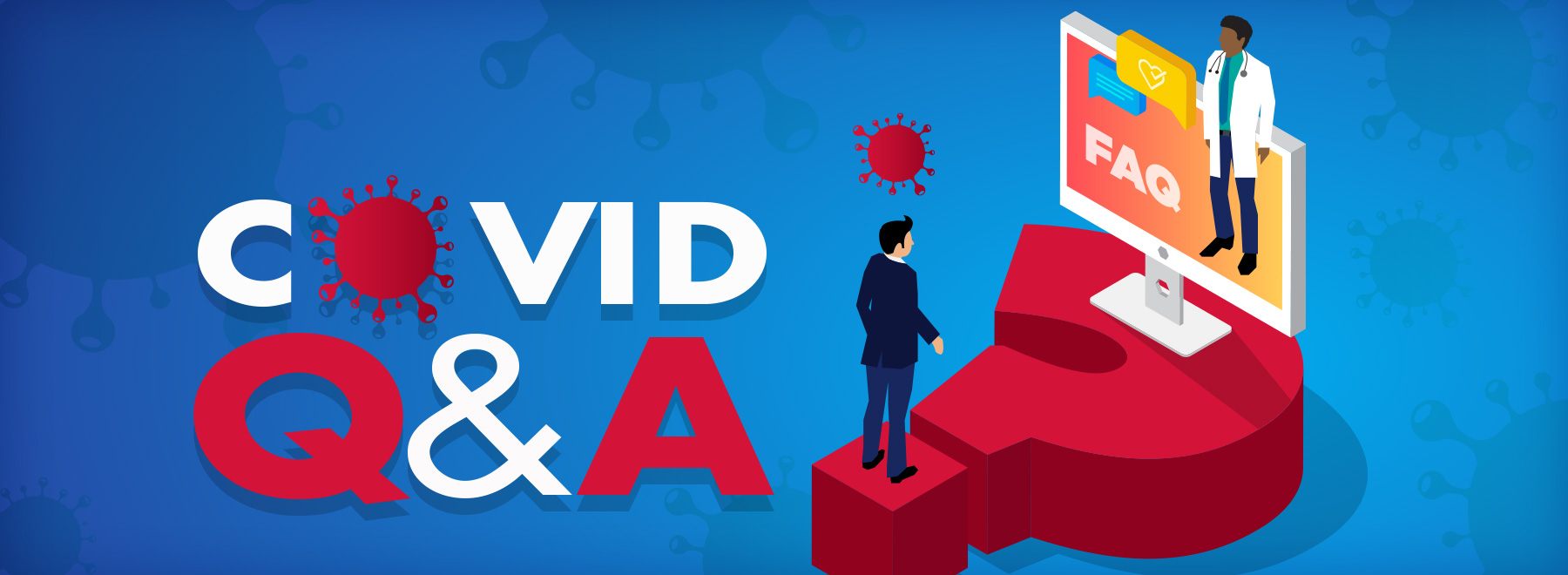As pandemic continues, infectious disease experts offer insight

As the COVID-19 pandemic settles into its second year, its changing nature raises questions that sometimes don’t have clear answers.

Infectious diseases specialists at the University of Mississippi Medical Center have been leaders in the state’s response to the virus, imparting information that helps residents protect themselves from sickness or death.
Dr. Jason Parham, director of infectious diseases, and Dr. Bhagyashri Navalkele, medical director of infection prevention, answer questions that are top of mind in the pandemic’s current state.
• How much worse could the Delta variant get?
Without an increase in vaccination rates, we will continue to see a rise in cases, hospitalizations and perhaps deaths among the younger population.
The Delta variant is a highly contagious SARS-CoV-2 strain and currently the dominant strain in the United States. COVID-19 vaccines provide protection from developing severe disease and death from all variants, including the Delta variant. Unvaccinated individuals who are not following preventive measures are at highest risk for exposure and developing disease.
We are seeing worse outcomes from the spread of the Delta variant, resulting in increased cases and hospitalizations in Mississippi. Unfortunately, the Delta variant has impacted children under 18 more than during previous waves.
• If booster shots are recommended this fall, who should get one?
There are currently multiple research studies underway investigating the effectiveness of vaccine booster shots for sustained immunity against COVID-19. Currently, there is no official recommendation from the Advisory Committee on Immunization Practices suggesting the need for booster shots for any population group.
If science supports the use of booster shots, it is possible that boosters could be recommended for the elderly, the population with poor immune systems, or travelers to certain areas of the world to cover the prevalent SARS-CoV-2 strain in that area.
• Many thought the vaccine was almost sure to protect them, but some vaccinated people have gotten COVID-19 and have been pretty sick. Are they just unlucky to be in that vaccinated-yet-unprotected group of five or six percent, or has something changed?
COVID-19 vaccines are highly effective in preventing severe disease and death. A vaccinated person exposed to the SARS-CoV-2 virus can still acquire the virus and develop a COVID-19 infection or disease.
Breakthrough cases among vaccinated individuals rarely result in hospitalizations or deaths. The level of protection from the vaccine to individual persons also depends upon their underlying medical conditions or ongoing medications resulting in poor immune response and potentially less protection from the vaccine. Thus, it is important for vaccinated individuals to continue to follow prevention measures, such as masking, hand hygiene and social distancing in crowded places, indoor settings or when in a mix of vaccinated and unvaccinated people.
• When can my child under 12 get vaccinated?
Clinical trial studies are currently in process studying the effectiveness of the COVID-19 vaccine in protecting children under 12 years of age. Emergency use authorization and vaccination among children might occur by mid-winter of this year.
• How bad will COVID-19 be this fall and winter?
If we continue to have a significant number of unvaccinated populations, we will likely continue to see transmission and a surge in COVID-19 cases and hospitalizations this fall and winter, similar to last year.
• Can we definitively say whether people should still wear a mask?
The Centers for Disease Control and Prevention has provided recommendations on masking during different settings. The need to wear a mask can be determined based on vaccination status and certain environmental settings.
Masks are not required in uncrowded outdoor settings. Unvaccinated individuals should continue to mask at all times in indoor settings. Vaccinated individuals can choose to remain unmasked around other fully vaccinated individuals in indoor settings. Fully vaccinated elderly and immunosuppressed people should continue to follow recommended preventative measures, such as masking, hand hygiene and social distancing.
• How safe is it for a vaccinated individual to hang out with an unvaccinated friend?
If you are fully vaccinated, you are at low risk from developing severe disease and death from COVID-19. However, you could still develop an infection upon exposure from an unvaccinated friend or others.
The risk of a fully vaccinated person transmitting the virus to an unvaccinated friend is low, but it is still a risk, and your friend could develop a severe disease requiring hospitalization.
Currently, we are seeing a surge in COVID-19 cases and it is recommended that, to stay safe, follow prevention measures, such as masking, hand hygiene and social distancing, to protect yourself and others from exposure.
• Does an individual who has already had COVID-19 need to be vaccinated?
The short answer is yes. All individuals, irrespective of their previous COVID-19 infection, need to receive a COVID-19 vaccination. Early evidence suggests that natural immunity from COVID-19 may not last very long, and re-infection is possible, so we strongly encourage you to get vaccinated.
The COVID-19 vaccine will provide a booster immune response and potentially offer a longer duration of immunity. Protection from more transmissible variants also appears to be superior after full vaccination versus natural immunity from prior infection.
• Are individuals who have recovered from COVID-19 and who have received the vaccine protected from the Delta variant?
Vaccination after COVID-19 infection provides long-lasting immunity and protects against all variants. Based on studies, all three of the vaccines approved for use in the United States are effective against COVID-19 variants.
However, it appears their efficacy may be slightly reduced. The vaccine we know the most about at this point is the Pfizer vaccine, whose efficacy against the Delta variant appears to be reduced from about 95 percent to about 88 percent. However, vaccinations are still recommended, as they provide good protection against severe disease and death.
• Is a worse variant than Delta expected?
It is very important to point out that viruses mutate all of the time, and that mutation is expected to occur during a pandemic. Currently, it is difficult to say if there will be a worse variant than Delta. However, continued spread of the virus could result in the development of more transmissible and deadly variants.
There are ongoing reports of newly recognized coronavirus strains, including Alpha (from the United Kingdom) and Delta (from India). In scientific terms, these are referred to as genetic variants. Some variants carry mutations, including one in the coronavirus spike protein that the virus uses to bind to its receptor in human cells.
The best strategy to stop the coronavirus from mutating and developing new variants is by slowing down the transmission of this virus. Ongoing prevention practices, such as hand washing, social distancing, wearing a mask around others and avoiding social gatherings, will help slow the transmission of COVID-19.
The above article appears in CONSULT, UMMC’s monthly e-newsletter sharing news about cutting-edge clinical and health science education advances and innovative biomedical research at the Medical Center and giving you tips and suggestions on how you and the people you love can live a healthier life. Click here and enter your email address to receive CONSULT free of charge. You may cancel at any time.



